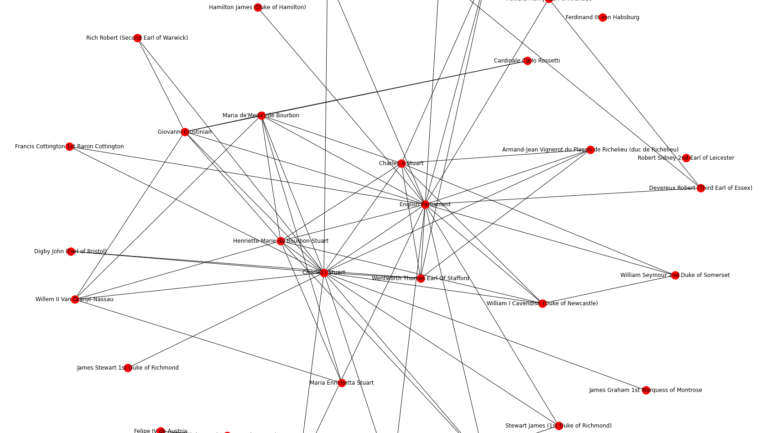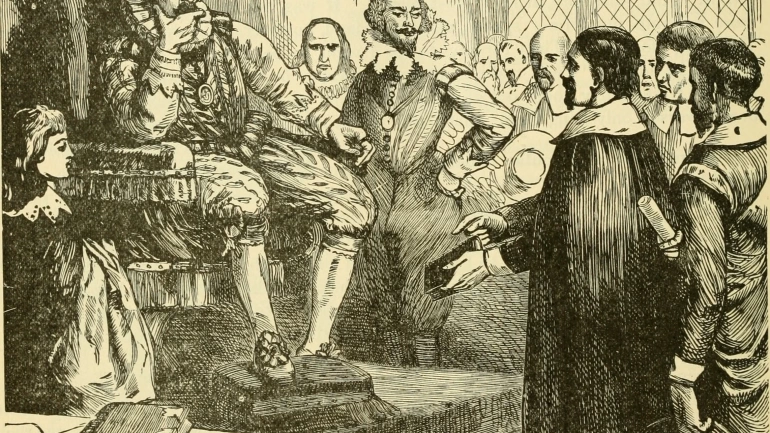[Edited by Wouter Kreuze]
Salvetti dispatched the newsletters together with his own letters. For every week, we find one newsletter accompanied by one letter, always dated on the same weekday. But how did Salvetti actually compose the news?
The text of all letters and newsletters combined is massive. It would take a single researcher an incredible amount of time to read through everything. Fortunately, Stefano Villani already made transcriptions. We have been able to utilize these in this project. Thanks to the application of digital methodologies, then, we can make systematically queries in the corpus. In this way, we can for example look for documents sharing significant similarities. This has yielded some interesting results.
For instance, there are issues from successive weeks, that look very much alike. The last item of the newsletter dated 20 October 1651 reads:
«The court-martial has condemned to death the Earl of Derby [James Stanley], who was made prisoner in the battle of Worcester and he will be brought to dead in the city of Chester as long as he will not be pardoned by the Parliament, to which end general Cromwell does whatever he can in order to save him, and if he succeeds, it will be on condition that he puts the island of Man, of which he calls himself king, in the hands of the Parliament.»
«Il consiglio di guerra ha condannato a morte il signor conte di Darby [James Stanley] che fu fatto prigione nella battaglia di Vigornia, et sarà fatto morire alla città di Chester, mentre non venga graziato dal Parlamento, verso del quale il generale Cromuell fa quanto puole per salvarlo, et riuscendoli sarà con condizione che metta nelle mani del Parlamento la sua isola di Man, la quale se ne intittola re.»
The next week, we find a news item that is almost identical with only some minor differences. This was probably done after new information had come to light. This made it necessary to rectify last week’s item. This is not corrected explicitly, however. The news item is simply published again. The first line is verbatim the same:
«The court-martial has condemned to death the Earl of Derby [James Stanley], who was made prisoner in the battle of Worcester, and they will bring him to death in Bolton in the province of Lancaster as long as he is not pardoned by the Parliament, to which end general Cromwell makes serious efforts in order to save his life on condition that he puts his island of Man, of which he calls himself king, in the hands of the Parliament.»
«Il consiglio di guerra ha condannato alla morte il signor conte di Darby [James Stanley] che fu fatto prigione nella battaglia di Vigornia, et lo faranno morire a Boulton nella provincia di Lancastria, mentre però non venga gratiato dal Parlamento, verso del quale il generale Cromuell[Cromwell, Oliver] fa buonissimi uffizij per salvarli la vita; ma con conditione che consegni nelle mani del Parlamento la sua isoletta di Man, della quale se n’intitola re.»
The most significant difference, then, is a change in location. What in one week was about to happen in Chester, was said to take place in Bolton the one week later.
By closer inspection, it becomes clear that the second newsletter also repeats another theme from the first. Both of them speak also speak about the Genoese agent Francesco Bernardi, who had trouble getting the status of official envoy.
This incident was not standing on its own but also occurred in other weeks and years. Let us look at another example earlier that year. The 7th of March, the newsletter mentions:
«The nobleman sent by the prince of Condé [Lous de Bourbon II] is still here, however without having received any precise answers, as here there does not appear any sign yet that these Lords are about to give in to his wish, except then if the matters of that kingdom would be reduced to such a state that it would invite them to do something that would increase their greatness.»
«Habbiamo sempre qui il gentil’huomo mandato dal signor principe di Condé, [Bourbon, Louis II de] senza ricevere però nessuna risposta precisa, non vedendosi qui per ancora niuna apparenza che questi signori siano per dargliela conforme al suo desiderio, se non in caso che li affari di quel regno fussero ridutti in stato da invitarli a fare qualcosa che possi augumentare la loro grandezza.»
A news item found in next week’s issue appears very similar, albeit a bit condensed.
The nobleman sent by the prince of Condé [Louis de Bourbon II] is still here, but still without any sign that he is about to get what he wants, except then if the matters of that kingdom would be reduced to such a state that it would invite them to do something that would increase their greatness.
Also here, the newsletters give signs of keeping the reader up-to-date compared to last weeks’ news.
«Habbiamo sempre qui il gentil’huomo mandato dal signor principe di Condé, [Bourbon, Louis II de] ma sempre senza apparenza che sia per ottenere quanto desidera; se non in caso che questi signori vedessero li affari di quel regno ridutti in tal stato da invitarli ad accrescere la loro grandezza.»
«The nobleman sent by the prince of Condé [Louis de Bourbon II] is still here, but still without any sign that he is about to get what he wants, except then if the matters of that kingdom would be reduced to such a state that it would invite them to do something that would increase their greatness.»
This tells us something about how these newsletters were made. In the early modern period, news writers often did not begin with an empty sheet. Instead, they copied and elaborated upon the work of others. That is why it could happen that a news writer reworked the same news item in two successive weeks. In that respect, the newsletters that Salvetti sent home did not belong to him personally, but made part of a wider web of news exchange.




